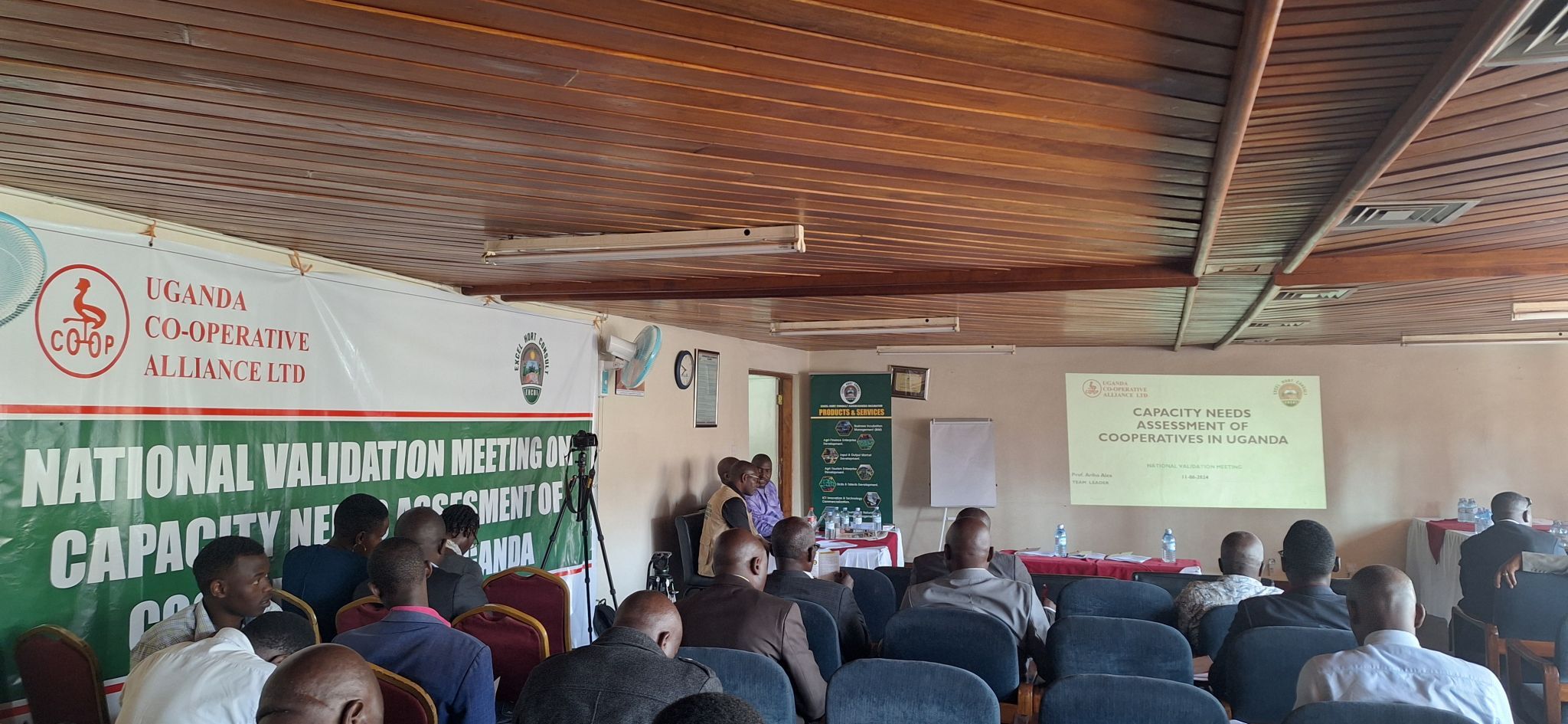
Cooperatives Ecosystem Mapping: Understanding the dynamics of the cooperative landscape in Uganda
AAIN technically supported Excel Hort Consult Agribusiness Incubator (EHCAI) , its member incubator, in conducting a National Capacity Needs Assessment of Cooperatives Societies and Unions in Uganda. The study supported by the Uganda Cooperative Alliance aimed to establish the capacity gaps in the Ugandan cooperative sector and design strategic interventions to achieve meaningful and sustainable economic contributions to cooperative members. The findings were unveiled yesterday at a National Stakeholders Validation meeting held at the Uganda Cooperative Alliance offices in Kampala. In attendance was the Hon. Frederick Ngobi Gume Minister of State for Cooperatives as the Chief Guest, Members of Parliament, Cooperative Societies and Union representatives, development partners, and cooperators. The extensive study, covering all 135 districts of Uganda, revealed key insights into the state of the cooperative sector. The gender participation gap remains a pressing issue, with 71% of members being males and only 29% females, highlighting a significant gender disparity. Financial cooperatives lead at 55%, followed by marketing cooperatives at 19%, and primary production cooperatives at 12%. Consumer cooperatives are 6%, worker cooperatives 4%, service cooperatives 3%, water and environment cooperatives 0.5%, and electricity/energy cooperatives 0.1%. Notably, 53% of cooperatives are still under probation, 43% are permanently registered, and 4% are unregistered. Nearly all (90%) of cooperatives have limited working capital, with 70% depending solely on shares and membership fees for funding. Five key areas of intervention for capacity development to enhance the resilience of the cooperative sector were recommended;
The gender participation gap remains a pressing issue, with 71% of members being males and only 29% females, highlighting a significant gender disparity.
- Strengthen leadership and governance structures to promote transparency and accountability
- Support cooperatives in the development of strategic plans, innovative business models and compelling value propositions that truly resonate with their members.
- Review and update the current policies and frameworks to suit the current situation.
- Increased commitment from the Government to facilitate the Alliance play its pivotal role in coordinating and supporting societies and unions
- Craft personalized member recruitment and engagement plans that resonate with member interests and needs.
Research and Innovation is a vital component of AAIN service delivery, and as such, providing technical support to our partners Excel Hort Consult Agribusiness Incubator (EHCAI) and Uganda Cooperative Alliance in this study reinforces our dedication to contributing to innovative approaches and methodologies for sustainable and inclusive development. We are anticipating that with these data-driven insights and recommendations, the Uganda Cooperative Alliance as the apex body of cooperatives in Uganda will deliver improved services to its members that will ultimately lead to a stronger and more vibrant cooperative sector in Uganda.




